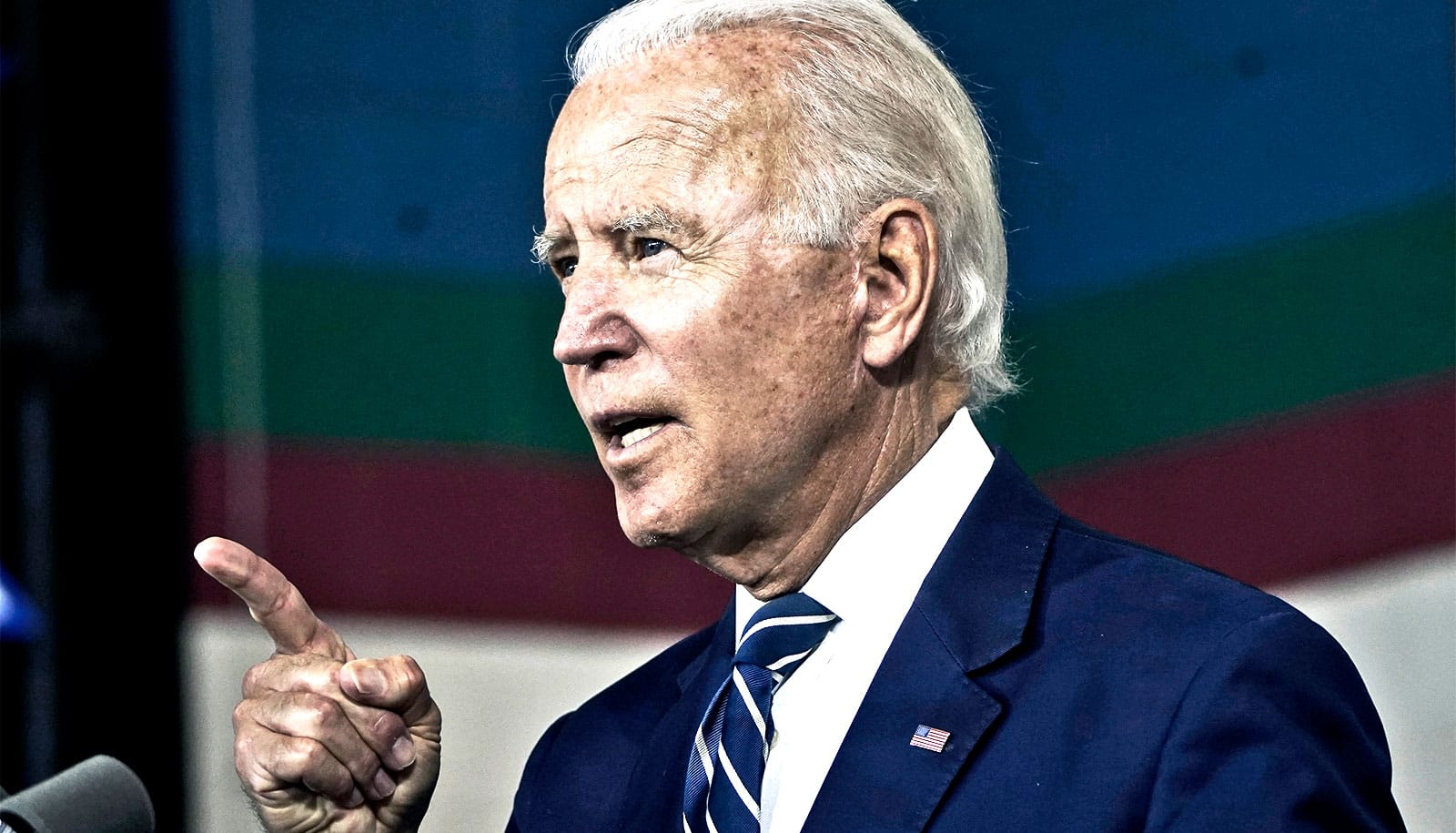Joe Biden’s $2 trillion plan to tackle climate change and stimulate an economic recovery is “bold, ambitious, and visionary,” but lacks specifics on oceans and infrastructure planning, experts argue.
The plan Biden, the presumed 2020 Democratic nominee for US president, has proposed would take four years to roll out over his first term in office. It calls for increasing clean energy use in transportation, electricity generation, and buildings.
The plan sets an ambitious goal of decarbonizing the US power grid by 2035, on course with a larger target of the country achieving net-zero carbon emissions by 2050. The proposal also calls for establishing an Environmental and Climate Justice Division within the Department of Justice, aiming to create job opportunities in the clean energy sector while keeping racial and socioeconomic equity in mind.
In remarks former vice president Biden delivered in Wilmington, Delaware to announce the climate action plan, he said, “When Donald Trump thinks about climate change, the only word he can muster is ‘hoax.’ When I think of climate change, the word I think about is ‘jobs’—good-paying union jobs that’ll put Americans to work.”
“Its degree of boldness is really laudable—it’s not a business-as-usual, modest, or incremental climate plan,” says Peter Fox-Penner, director of Boston University’s Institute for Sustainable Energy and contributor to the university’s Climate Action Plan.
“There’s a lot of really fantastic things in this, I could go on for a long time,” he says.
Still, there are a few details that could be fleshed out more, says Fox-Penner, Randi Rotjan, a marine ecosystems scientist and research assistant professor of biology, and Gregory Wellenius, an environmental health researcher and director of the Climate and Health program.
Here, the three experts weigh in on what they like about the plan and areas they think could be improved:
What do you find most promising about Biden’s plan and thinking?
Fox-Penner: Its degree of boldness is really laudable—it’s not a business-as-usual, modest, or incremental climate plan. It’s bold, ambitious, and visionary. It’s 19 pages long… that’s an impressive degree of comprehensiveness.
It covers not only the power sector (which is the first thing most people focus on when they think about a climate change action plan), but more than any other presidential-level climate plan I’ve ever seen, Biden’s plan talks about transportation, manufacturing, agriculture, natural resources, and carbon removal as well.
It has a strong focus on environmental justice, making sure jobs will be available to underrepresented communities. There’s quite a lot of language about allowing union representation in the form of millions of new jobs [in renewable energy and sustainability].
The plan also joins together two national imperatives by committing to retrofit 4 million homes and build another 1.5 million affordable housing units that are extremely green and sustainable. The plan’s treatment of vehicles is excellent, and the fact that the plan recognizes a role for nuclear technology and carbon capture is good. Biden envisions shifting to electric transportation, building and revitalizing the American auto industry. There’s a lot of really fantastic things in this, I could go on for a long time.
Rotjan: This is an exciting plan that covers a lot of ground. I think the most promising part is the very clear articulation of action items that will fulfill multiple needs—environmental justice and clean energy infrastructure that simultaneously modernizes our systems and facilities as a nation, and provides resources and access to people, being mindful of need and equity issues.
The economic benefits from realizing this plan are very clear. I think the whole plan is very promising, and I’m very supportive!
Wellenius: Biden’s recently announced plan on climate and clean energy includes several very good ideas that will help us address the serious threats posed by continued climate change while also creating more jobs and healthier, more sustainable, and more resilient communities across the country.
If implemented as described, this plan has the potential to transform—for the better—the way most Americans live, work, learn, and play. I appreciate that the plan sets out an ambitious timeline and places special emphasis on improving health equity and environmental justice.
What criticisms do you have of the plan, or aspects where you think it could be improved?
Fox-Penner: There are no areas where I don’t like the plan. But I think one area that needs additional work is the area of infrastructure planning. We need to really retool a lot of our energy infrastructure—I’m talking about the networks for delivering clean fuels like hydrogen and renewable natural gas, and expanding those energy distribution networks.
Energy systems are networks, and to create services that can reach everybody, you need to consider the whole network, not just the generation or transmission or distribution of fuels.
Rotjan: As a marine biologist, I’m always mindful of aquatic ecosystems. I would like to see this plan give more detail on action items in ocean and freshwater ecosystems, and/or talk more about the benefit of these terrestrial actions to watershed health. At the same time, however, the plan does address safe drinking water and wastewater infrastructure, and most importantly carbon pollution, which will all help aquatic ecosystems tremendously.
Wellenius: While Biden’s plan acknowledges that continued climate change is a key threat to the health and well-being of everyone across the country, the plan is missing calls (or additional funds) for research into adaptation and resilience to climate change through the National Science Foundation, National Institutes of Health, Centers for Disease Control and Prevention, or other government agencies.
Research focused on minimizing the adverse health impacts of climate change will be crucial to saving lives and protecting our communities over the short and long term.
Source: Boston University



